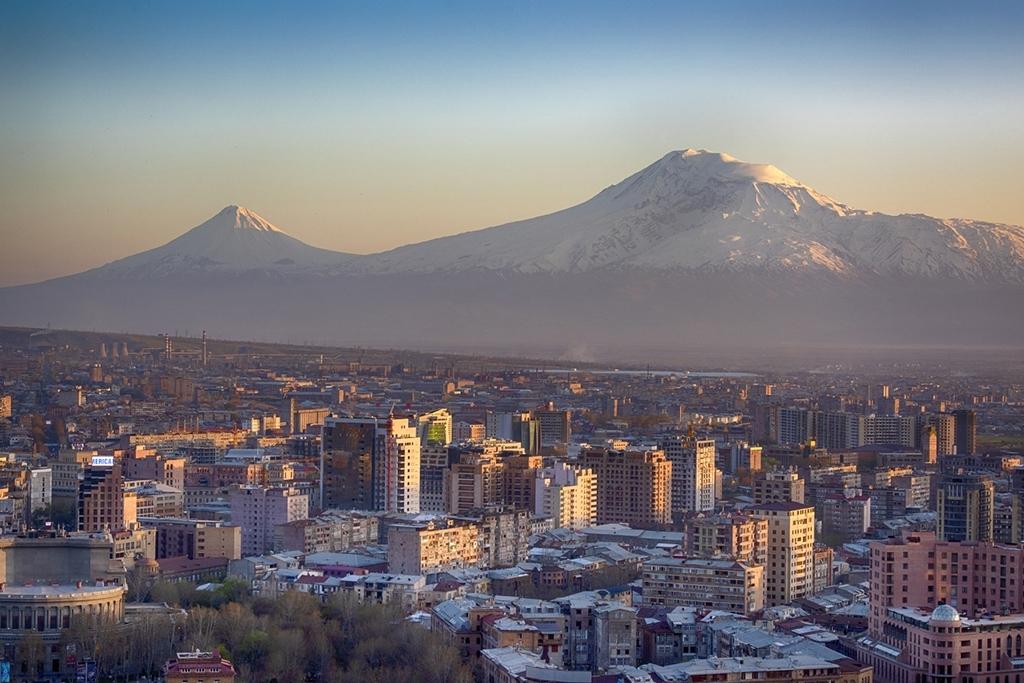Mythical "genocide" rhetoric and tentative reconciliation attempts

By Orkhan Amashov
In the wake of the new phase in the Turkish-Armenian normalisation process, which is riddled with uncertainties, reciprocal mistrust and accusations as to the preconditions, the date of 24 April remains a focal point around which emotions continue to swirl incessantly.
This is a day on which Armenians at home and abroad throw a retrospective glance at their past, replete with genuine and imagined pain, contemplate the present and think of a future, filled with imaginary successes. This is also a day on which the chances for Turkish-Armenian normalisation pass through their annual test of emotional sustainability.
Armenia is nowhere near exorcising the "genocide" demon from its body. The spirit and aspirations of the nation are still moulded and driven by a hopeless desire to make the whole human race accept that what happened to the Armenian population of Eastern Anatolia during the First World War was an act of 'genocide', deliberately perpetrated by the Ottoman Empire.
When the first signs of the new phase of normalisation were imparted to the general public and media in December 2021, the initial reaction was one of clear optimism, grounded on the assumptions that the circumstances were auspicious for a fresh start. That initial optimism has by no means faded away, for the conditions underpinning it are still consequential.
The key feature of the situation, which has been in slow evolution since December, is that the Karabakh obstacle that was tied to the abortive Turkish-Armenian normalisation process in 2009, has been curtailed, if not completely removed. But there are some new circumstances, which have hitherto been out of the equation.
After the Second Karabakh War, the Zangazur corridor emerged as one of Baku’s key projects, wholeheartedly supported by Ankara and opposed by Yerevan, which sees it as an encroachment into its sovereignty. Since Turkey has made it manifestly clear that all steps will be agreed with Azerbaijan, one could expect that the Zangazur element will be integral to the process.
However, on the whole, amongst other provisions, due to Baku’s warm reception of the reconciliation, one could assume that the current process is mostly on the Turkish-Armenian front. Two aspects loom large, both of which hinge on Armenian efforts to secure worldwide recognition for the events of 1915 as “genocide”.
Firstly, it is Yerevan’s phantasmagorical foreign policy ambition to make all nations under the Sun, including Turkey, accept its reinterpretation of what was undoubtedly a tragic affair, yet the idea of compelling humanity to acquiesce on this has always appeared to be a mission impossible. Secondly, Yerevan believes it should be possible to achieve progress without renouncing its territorial claims on eastern Turkey.
When it comes to actual normalisation, Armenia’s oft-stated view is that the process regarding these two issues should be set in motion without “preconditions”.
Ankara views the entire matter through the prism of sheer pragmatism. In order for diplomatic relations between the two nations to be established, inter alia, there should be mutual recognition of each other’s territorial integrity. Once this stage is complete, contemplations on the possible legal consequences of the so-called "Armenian genocide" will become of lesser import. Yerevan knows this, and keeps emphasising the importance of avoiding preconditions.
The "genocide" rhetoric is still central to the story of modern Armenian nationhood. Imagined glories and tragedies of the past still feed today's toxic ambition. This will undoubtedly continue for some time. But certain things may and should change.
Some elements of the Armenian establishment have come close to recognising that there is something deeply wrong with the national psyche. Being something akin to a tin-pot little Eurasian country, Armenia has long imagined itself within an unrealistically expansive dimension, focusing on the myth of "Great Armenia". This normalisation may induce the healthy self-appraisal of the country's true position within the grand scheme of life and the reappreciation of its ambition.
Not all regional actors are genuinely interested in the Turkish-Armenian thaw. Driven by different interests and priorities, the so-called sceptics share one common trait: they have benefited from the status quo. Over the past 30 years, for example, Georgia has become a critical transport hub and a new situation may cast aspersions on its uniquely advantageous position.
Iran and Russia may have circumstantially different, but substantively similar concerns. If the normalisation attempts reach a new phase, Tehran’s energy leverage on Yerevan may substantially decrease.
Although the current phase of the process is being deliberated under the Kremlin's auspices, and its leverage both on the normalisation in general and Yerevan is considerably potent, the Russian attitude is far away from being straightforward. Moscow has also benefited from Yerevan's isolation, and the new opening with Turkey may curb its sway over Armenia.
In the final analysis, for all the challenges and some of the seemingly intractable blots, this is still the most opportune time for the thaw between Ankara and Yerevan.
The promise is fragile. But the chances for real progress are considerably greater than ever before. Special envoys have been appointed, and the geopolitics of the present time is relatively conducive to positive developments.
--
Follow us on Twitter @AzerNewsAz
Here we are to serve you with news right now. It does not cost much, but worth your attention.
Choose to support open, independent, quality journalism and subscribe on a monthly basis.
By subscribing to our online newspaper, you can have full digital access to all news, analysis, and much more.
You can also follow AzerNEWS on Twitter @AzerNewsAz or Facebook @AzerNewsNewspaper
Thank you!
